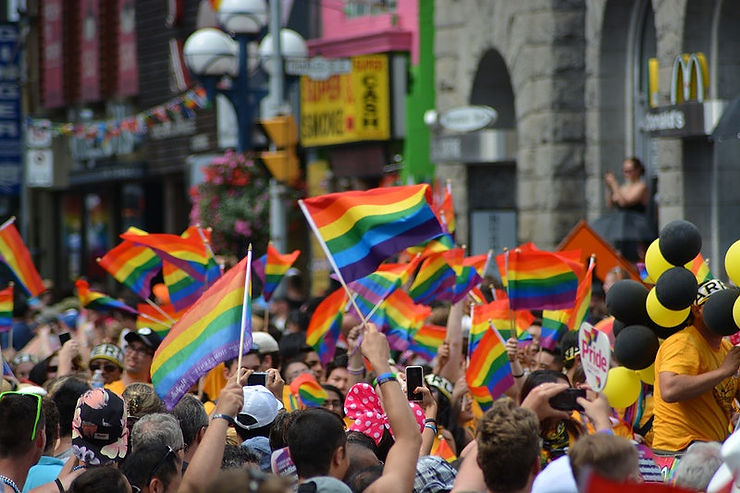The History and Significance Behind Pride Month: A Time of Celebration and of Love
- Charles Lassailly
- Jul 4, 2022
- 2 min read

“History isn't something you look back at and say it was inevitable. It happens because people make decisions that are sometimes very impulsive and of the moment, but those moments are cumulative realities.” This statement was voiced by Marsha P. Johnson, a trans black American activist who was a source of inspiration and of courage during the Stonewall Riots in 1969. This force of protest is believed to have served as a catalyst for the LGBTQ+ rights movement, leading to the formation of a plethora of such activist groups in the United States, and all around the world. The month of June is now celebrated internationally in order to honour the activists who fought for their rights and who boldly stood up to the system and who protested for equality.
On June 28, 1969, a routine police unjustifiably raided a gay bar, called Stonewall Inn. This violent event sparked a fire that fuelled the first wave of the LGBTQ+ Pride movement in New York City while leaving a rift between law enforcement and gay-rights supporters that seemed to deepen distrust over the years.
Frustration and fear from the LGBTQ+ community inevitably led to individuals and activists such as Marsh P. Johnson, Sylvia Rivera, Storme DeLarverie and Miss Major Griffin-Gracy – young New York residents at the time – took it upon themselves to lead major successional protests and riots in the name of equality, opposing discrimination, prejudice and segregation. This time period from June 28th, 1969, to July 3rd, 1969, was thereafter named the Stonewall riots, after the Stonewall Inn gay bar where everything started.
However, this wasn't the first gay rebellion. Nonetheless, for the first time, gay activists around the country were prepared to commemorate it. It was the first to be called “the first” and that act of naming had significant meaning. Such nationally coordinated events were proof of an LGBTQ+ movement that had spontaneously grown in strength during the 1960s, not merely a movement that was sparked by a single riot. Nevertheless, the story of how this particular night and this particular bar came to signify global gay rebellion is one of how collective memory works and how social movements form to commemorate their accomplishments.
Pride is an action of both offering and demanding love and respect for one another. It is the ability and freedom to be who you are, as an individual, and to openly love those you do. Most importantly, Pride Month represents a time to honour those who were dealt hate and responded by fighting for love while simultaneously recognising the dark struggles and the brave protests that the LGBTQIA+ community was born out of. While being a party, this celebration is also an unstoppable force of change, that declares visibility and demands education. All in all, It is an opportunity to celebrate the progress of this cheerful community while also recognising the barriers to equality that still very much exist nowadays.


Comments